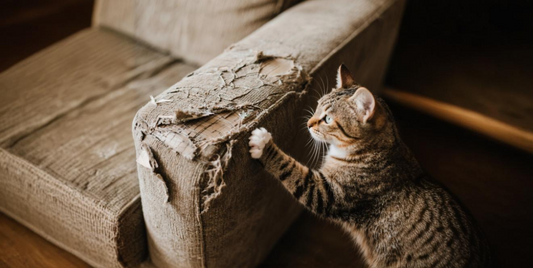If you’ve ever watched your cat snoozing through the day, you might wonder why they need so much rest. Cats are famous for their extensive sleep habits, with some sleeping up to 16 hours a day or more. But why do cats sleep so much? In this blog, we’ll explore the reasons behind your cat’s long naps, from their natural instincts to the biological factors that drive their sleep patterns.
Why Do Cats Sleep So Much?
Cats are natural predators, and in the wild, they conserve energy by sleeping during the day and becoming active during dawn and dusk. Even though domestic cats no longer need to hunt for food, their biological instincts still drive them to sleep for long periods to conserve energy. Let’s take a closer look at some specific reasons why your cat spends so much time napping.
1. Indoor Cats and Boredom
Why do indoor cats sleep so much? Without the stimulation of hunting or exploring, indoor cats often become bored, which can lead to even more sleep. The lack of mental and physical activity in an indoor environment results in excessive napping, as there are fewer opportunities for excitement or engagement. While this is completely normal, providing more enrichment through toys, games, and interaction can help reduce the amount of sleep your cat needs out of boredom. Engaging their natural instincts can make their waking hours more stimulating.
2. Energy Conservation
Cats are crepuscular, meaning they are most active during dawn and dusk. This natural schedule means that they spend the majority of the day resting in preparation for these active periods. Even though your domestic cat may no longer need to hunt, their body is still programmed for this sleep-wake cycle. By sleeping during the day, cats are conserving energy to be at their most alert during their peak hunting times—whether that’s playing with toys or chasing imaginary prey.
3. Temperature Regulation
Sleep also helps cats regulate their body temperature. Cats are known to seek out warm, cozy spots to nap, and sleeping more helps them conserve warmth and energy. This is especially important for indoor cats during colder days when they may curl up in a sunbeam or under a blanket to stay warm. By sleeping more, cats can maintain a stable body temperature with minimal effort.
4. Predator Instinct
Even though your domestic cat may not need to hunt for its meals, the instinct to conserve energy for potential “prey” remains. Wild cats sleep to store energy for hunting and survival. Your cat’s long naps are remnants of this natural predator instinct, helping conserve energy in case the opportunity arises to chase or play. Whether your cat is stalking a toy mouse or lounging in the sun, their body is following a routine that has been honed by evolution.
5. Recovery from High-Energy Activities
Cats are built for short bursts of intense energy, such as running, jumping, or pouncing. After these periods of high activity, they need long stretches of rest to recover. Even if your cat spends most of its time indoors, these natural bursts of energy followed by long naps still play a role in their daily life. Whether they’re sprinting after a toy or engaging in a playful chase, cats need significant recovery time due to the intensity of their short, high-energy movements.
The Science Behind Cat Sleep
Cats have evolved to sleep for extended periods to recover from their short but intense bursts of activity. In the wild, cats would need to conserve energy for hunting, which often involves quick, high-energy pursuits. Even though domestic cats no longer need to hunt, their bodies still follow this natural cycle.
Cats’ sleep is divided into two phases: non-REM (deep sleep) and REM (light sleep). Non-REM sleep is the most restorative, allowing the body to repair tissues, build muscle, and maintain immune function. During REM sleep, brain activity increases, helping the cat process memories and retain information. This is why you may notice your cat twitching or moving slightly during sleep—it's their brain "replaying" the day’s activities.
Additionally, cats possess a high proportion of fast-twitch muscle fibers, which enable them to make explosive movements, like sprinting or pouncing. These muscles fatigue quickly and require long recovery periods, which explains why cats need such extended periods of sleep. This combination of mental and physical recovery makes sleep an essential part of a cat’s daily routine.
Conclusion: Understanding Why Cats Sleep So Much
Why do cats sleep so much? While it might seem excessive, sleep is a crucial part of your cat’s natural routine. From conserving energy for hunting to dealing with boredom, understanding your cat’s sleep patterns can help you create a more enriching and balanced environment for them. Whether they’re snoozing in a sunbeam, curled up on your bed, or taking a break from a burst of energy, your cat’s long naps are a key part of their overall well-being.
By appreciating their biological need for rest, you can ensure your cat is healthy, happy, and ready to enjoy their waking hours to the fullest.




